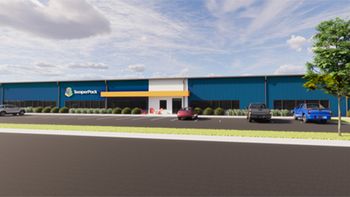
UK company seeks to convert cryopreserved cells to room-temperature ones
Atelerix wins another round of funding from a UK innovation sponsor
Atelerix, a biotech startup spun out of Newcastle University in 2017, is targeting a key problem of cellular and tissue therapies: the need to cryopreserve (often, at temperatures of -170°C, with liquid nitrogen) human (and mammalian) cells. In early September, the company won a “significant” investment from the UK Innovation and Science Seed Fund Accelerator Programme, a part of Innovate UK. (Innovate UK combines private and public funding to support technology commercialization.) This follows early funding rounds, totaling over £1 million, from Innovate UK and other organizations.
Atelerix’ approach seems fairly simple, although it is working the complex arena of cellular and tissue science. Individual cells, or tissue samples (such as from biopsies) are mixed with an alginate gel, encapsulating the biomaterial. Once ready for analysis (or, in the potential case of a human therapy, infusion into a patient) a “release buffer” is added, dissolving the gel. Atelerix literature claims cell viabilities, after de-gelling, close to the original sample, or, in some cases, slightly less than what is obtained from cryopreserved biomaterials. According to the company, some cells, such as hepatocytes (liver cells) can’t be cryopreserved at all. Cells have been encapsulated then released for upwards of five days, at room temperatures, with cell viability maintained.
Maintaining cell viability is a key concern for the fast-evolving field of cellular and genetic therapies (CGTs); the Assn. of Regenerative Medicine counts over 1,000 clinical trials
Dr. Mick McLean, CEO, says that company has been selling cell-preservation kits for a year now, with customers involved in clinical research around the world, and at “several” of the top 10 pharma companies. The kits are in three branded forms: BeadReady (for cells); WellReady (for cells or organoids on multi-well plates); and TissueReady, for small tissue samples. The company has tested its technology successfully on upwards of 30 mammalian cells and tissues, and is currently expanding that list.
Newsletter
Stay ahead in the life sciences industry with Pharmaceutical Commerce, the latest news, trends, and strategies in drug distribution, commercialization, and market access.




